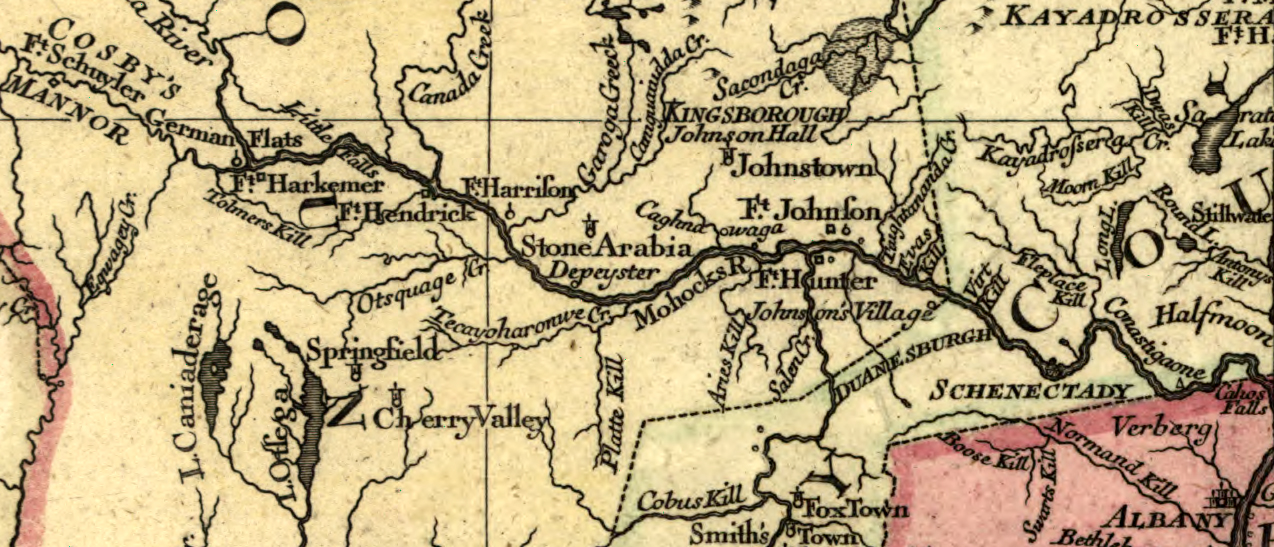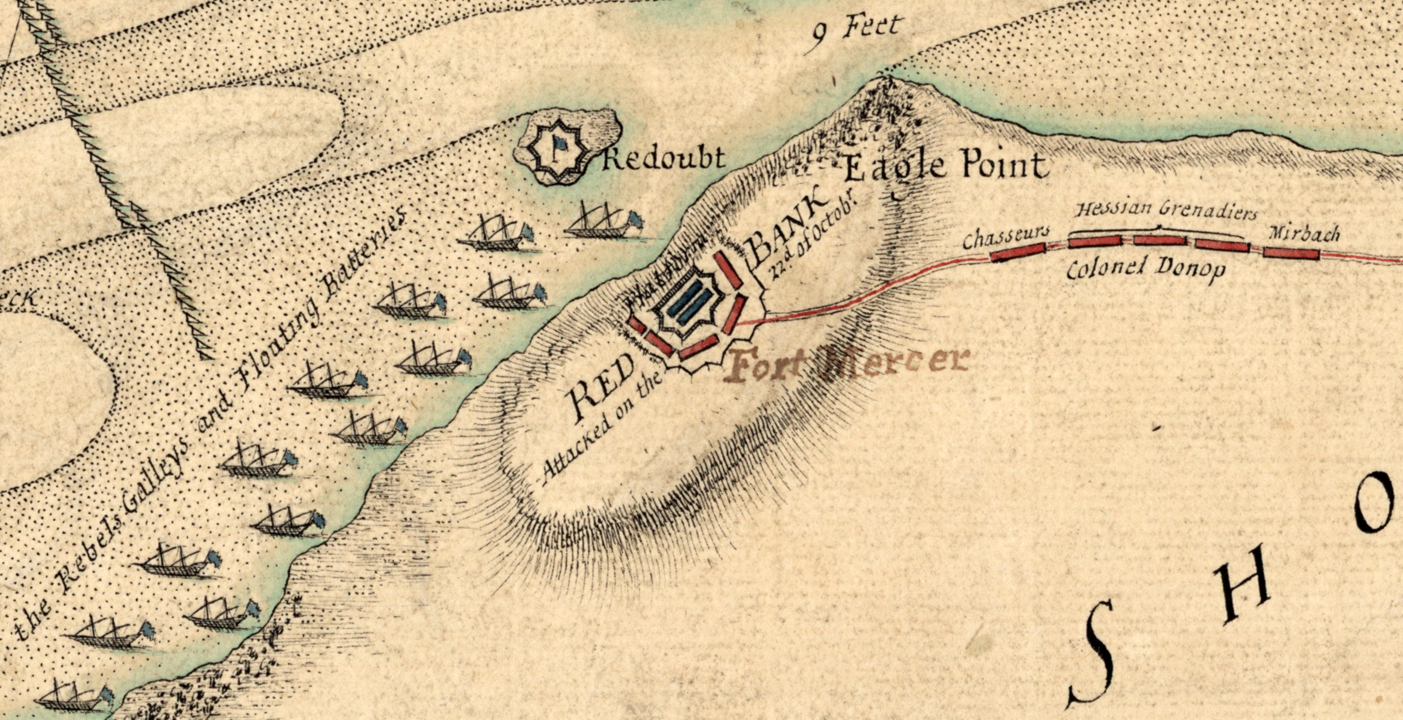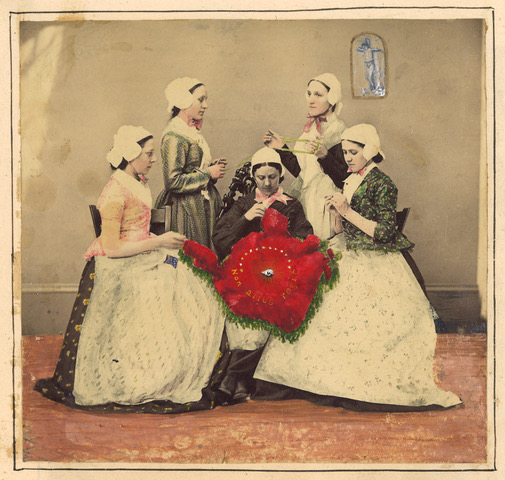Based preponderantly on The Cornwallis Papers,[1] this article describes in part Cornwallis’s last days in Virginia, his brief sojourn in New York, and events thereafter leading up to his arrival in London.
Immediately after the capitulation of Yorktown and Gloucester Cornwallis began to write his letter of October 20, 1781 reporting the outcome of the siege to Clinton.[2] He wrote it, he says, “under great agitation of mind and in great hurry, being constantly interrupted by numbers of people coming upon business or ceremonies.” In fact the interruptions were becoming so great that he had sought the assistance of the French in order to exercise some measure of control, as evinced by the following letter:
A bord de l’Experiment en rade de York
le 21 8bre 1781
Milord
Vous desirés une garde a bord de votre parlementaire pour empecher les Americains d’aller y troubler vos operations. Je viens, d’après votre demande transmise par Monsieur de Grandchain, d’ordonner une garde de 4 hommes et un caporal pour s’y transporter et prendre la consigne de l’officier qu’il y trouvera de votre part, et qui puise connoitre ceux qui doivent aborder or non. Veuilles bien leur faire donner un emplacement pour se coucher. J’ay fait pourvoir a leur nourriture.
J’ay l’honeur de vous le repeter, milord, je seray toujours empressé de saisir les occasions ou je pourray prouver qu’on ne peut ajouter au respect avec lequel j’ay l’honeur d’etre, milord,
Votre tres humble et tres obeissant serviteur
MARTELLI CHEVALIER
[TRANSLATION]
On board l’Expériment in York road
October 21, 1781
My Lord
You desire a guard on board your flag vessel to prevent the Americans from going and disturbing your operations there. In compliance with your request, transmitted by Monsieur de Grandchain,[3] I have just ordered a guard of four men and a corporal to be transported there and to take orders from the officer of yours that he will find there and who may know those who are to go on board or not. Please have a bunk provided for them to sleep in. I have taken care of their provisions.
I have the honor to repeat, My Lord, that I shall be most ready to seize every opportunity of proving to you that it is not possible to add to the respect with which I have the honor to be, My Lord,
Your very humble and very obedient servant
THE CHEVALIER MARTELLI[4]
Of pressing concern to Cornwallis was how to protect those loyalists particularly obnoxious to the enemy who had been serving or assisting him in either a military or civilian capacity. If they remained prisoners, they were liable to be brought rigorously before revolutionary courts with the risk that, if found guilty, for example of treason, they might be sentenced to death. Cornwallis did lessen the problem to some degree by straining article 8 of the capitulation so as to extend from troops to civilians the persons who, without examination, might sail for New York with his dispatches in the Bonetta sloop of war. Yet more was needed, given that article 10, which would have provided comprehensive protection for loyalists, was not granted by the enemy. So Cornwallis came to a tacit agreement with Washington ― who did not wish to sully his victory with the blood of his prisoners ― whereby Cornwallis was permitted to spirit away in flag vessels, for example the Andrew, Cochran and Lord Mulgrave, those loyalists who feared falling foul of revolutionary law. Not a party to the agreement was Gov. Thomas Nelson Jr. of Virginia,[5] whose following two letters to Cornwallis illustrate the nature of the problem:
October 20th, 1781
Rt. Hon. Lt. General Earl Cornwallis
My Lord
I have been informed that a number of the refugees from this State and also negroes are attempting to make their escape by getting on board the Bonetta sloop of war. As they will endeavour to lie concealed from your Lordship’s notice till the vessel sails, I have thought it necessary to make this communication to you that you may take measures to prevent the State and individuals from sustaining an injury of this nature.
I have the honour to be
Your Lordship’s obedient and humble servant
THOS NELSON Jr
October 21st, 1781
The Rt. Hon. Lt. General Earl Cornwallis
My Lord
I have received your verbal message respecting two citizens of this State, the Reverend Mr William Andrews and the Reverend Mr Harrison, who joined the British army after its arrival here and who are now delivered up into the hands of the civil power. The laws of this country have fixed the mode of proceeding against persons guilty of such conduct and we are ignorant of any power which has a right to supersede their force. By these laws, enacted by their own representatives, they shall be fairly and impartially tried and they must abide their sentence.
I am informed that Lt. Colonel Simcoe has refused to deliver up a certain Christopher Robinson who now bears a commission in his corps but who deserted from the actual service of the State. The articles of capitulation cannot justify this detention and I shall by no means acquiesce in it. It is my wish to treat those men whom the fortune of war has put into our power with that civility which their situation claims and it would give me pain to be constrained in any instance to act in a different manner. Your Lordship in the case under consideration has, I imagine, the power of preventing it and I flatter myself you will at once see the propriety of exercising this power.
I have the honour to be
Your Lordship’s obedient and very humble servant
THOS NELSON Jr[6]
Of the two clergymen seized by Nelson, William Andrews was an Irishman who was rector of the Anglican church at Portsmouth. He had arrived in Virginia in 1773 after ministering for a few years in New York. A wavering loyalist, who at a July 4 celebration in 1780 had publicly denounced the Declaration of Independence as “improper and impolitick,” he had been appointed chaplain to the garrison at Portsmouth in 1781. Having fallen captive at the capitulation of Yorktown, he would be allowed to go home before being indicted in March 1782 for high treason by the justices at Norfolk. He would not, however, stand trial, receiving a gubernatorial pardon for “the treason of which he was not convicted”, and took passage for England. In October 1783, while at Chelsea, he presented to the royal commission a claim for compensation in respect of his confiscated property in Virginia, and two years later was residing in Glasgow.[7]
William Harrison was an Anglican clergyman in Dinwiddie County who had resigned his benefice several months before being appointed chaplain to the garrison at Gloucester. Ambivalent in his politics, he had previously served as chairman of his county’s committee of safety. Having now fallen captive, like Andrews, at the capitulation, he too would be allowed to go home, but when he was brought before the examining court of Dinwiddie County on an indictment of high treason, he was acquitted, “no evidence appearing against him.” He did not return to the ministry full-time but took up residence in Petersburg, where he was elected to the Common Council, to the Board of Aldermen, and finally to the office of Mayor.[8]
As to Christopher Robinson, he like so many other loyalists in his situation would escape Nelson’s clutches and be spirited away from Virginia in one of the flag vessels. Commissioned an ensign in the infantry of Lt. Col. John Graves Simcoe’s Queen’s Rangers on June 26, 1781, he had been born into a family prominent in the public life of Virginia, attending the College of William and Mary at Williamsburg. At the close of the war he would be placed on the British half-pay list and settle in New Brunswick before moving on to Quebec. In 1792 he took up residence in Kingston, when Simcoe, now Lt. Governor of Upper Canada, appointed him Surveyor General of Woods and Forests there. In 1794 he was licensed to practise law and two years later was returned to the House of Assembly as the member for Ontario and Addington, promoting in due course a bill, which was not enacted, “to enable persons migrating into this province to bring their negro slaves into the same.” He died cut off from most of his family in Virginia, one of the few Robinsons there to be of the loyalist persuasion.[9]
Cornwallis did not deign to reply to Nelson’s letters and the removal of affected loyalists from Yorktown proceeded as Cornwallis and Washington had tacitly agreed.
Little else of importance was left for Cornwallis to resolve. As far as his troops were concerned, they were marched off as prisoners to camps in Virginia and Maryland under the guard of militia. After being wined and dined by Washington, Rochambeau and other revolutionary and French officers, Cornwallis and his officers entered into paroles and were permitted to go to New York, Charlestown or Europe. One officer per fifty men remained behind to reside with the rest of the prisoners.
On his arrival at New York Cornwallis wrote to Rochambeau confirming that certain naval arrangements explicit or implicit in the capitulation would be met and thanked him for his kindness and courtesy:
Nouvelle York
Novembre 25 1781
Son Excellence le Comte de Rochambeau etc. etc. etc.
Monsieur
Après un trajet très désagreable je suis arrive ici le 19 de ce mois.
L’Amiral Digby a eu la bonté de promettre de faire partir le Bonetta sans perte de tems et d’envoyer à son bord tous les François qui sont à présent prisonniers ici. Un nombre suffisant de prisonniers americains seront envoyés pour naviguer et seront chargés de vous livrer les autres parlementaires le plutôt qu’il sera possible, et si ce nombre n’egale pas le nombre des notres qui arrivent dans ces parlementaires, l’Amiral se tiendra responsable de vous rendre compte du reste à votre satisfaction. Le parlementaire nommé le Cochran fera voile dans peu de jours; celui nommé l’Andrew n’arriva qu’ hier mais, ayant fait eau dangereusement dans deux places, ne peut pas sortir avant d’ệtre reparé; et nous n’avons pas encore reçu des nouvelles de celui nommé le Lord Mulgrave.
Capitaine Dundas se charge de quelque fromage et de porter anglois, que je vous prie de me faire l’honneur d’agréer.
C’est avec des sentiments de la plus vive reconnoissance qui ne seront jamais effacés que je presente à votre Excellence mes très humbles remerciments pour toutes vos bontés et politesses. Il me fera le plaisir le plus sensible de saisir toutes les occasions qui pourront se presenter de montrer la consideration et l’estime la plus parfaite avec laquelle j’ai honneur d’ệtre, monsieur, etc.
[CORNWALLIS]
[TRANSLATION]
New York
November 25, 1781
His Excellency le Comte de Rochambeau etc. etc. etc.
Sir
After a very tiresome passage I arrived here on the 19th instant.
Admiral Digby has kindly promised to dispatch the Bonetta without loss of time and to send on board her all the Frenchmen who are now prisoners here. A sufficiency of American prisoners shall be sent to navigate and be charged with delivering up to you the other flag vessels as soon as it can be done, and if these men are not equal in number to ours coming in these flag vessels, the Admiral will hold himself responsible for accounting for the rest to your satisfaction. The flag named the Cochran will set sail in a few days; the one named the Andrew arrived only yesterday, but having sprung a dangerous leak in two places, it cannot leave until it is repaired; and we have as yet no news of the one named the Lord Mulgrave.
Captain Dundas has taken charge of some English cheese and porter, which I beg you will do me the honor of accepting.[10]
With sentiments of the warmest gratitude which will never be effaced, may I express to Your Excellency my very humble acknowledgements for all your acts of kindness and courtesy. It will give me the most heartfelt pleasure to seize every opportunity that may offer for demonstrating the respect and most perfect esteem with which I have the honor to be, sir, etc.
[CORNWALLIS][11]
The period from Cornwallis’s arrival in New York till his departure for England is chiefly notable for the beginning of the Clinton-Cornwallis controversy, a distasteful spectacle in which each sought to offload on to the other responsibility for the Yorktown disaster, whereas in reality both were in part to blame. For the reasons set out in chapter 44 and amplified in chapter 49 of The Cornwallis Papers,[12] Cornwallis for his part ought never to have marched into Virginia in the first place, while Clinton, once Cornwallis was there, brought undue pressure on him to return to Williamsburg Neck, tacitly acquiescing, despite Cornwallis’s reservations, in the choice of Yorktown as the only place to protect ships of the line. The danger to such a post, if command of the Chesapeake was lost, it did not take an accomplished strategist to see[13] ― and Clinton was aware that de Grasse was expected in the hurricane season.[14]
Clinton’s letter of December 2 and 10[15] is in particular misleading, where he asserts that his promises of relief, held out in his letters of September 2 and 6,[16] might have been frustrated by the navy, though no such assertions were made at the time. It was reasonable for Cornwallis to assume, as he did, that Clinton was speaking in the name of both services. In the same letter Clinton attempts to muddy the waters by stating that Cornwallis had implied that on the arrival of Washington’s troops he had been prevented from breaking out by Clinton’s letter of September 24,[17] but Cornwallis had made no such implication. It was Clinton’s letters of the 2nd and the 6th, received in mid September, that had led Cornwallis to continue with his decision not to break out when Washington’s troops arrived.
Cornwallis set sail for England on December 15 aboard the Robust, a 74-gun man of war convoying home a fleet of 120 merchantmen. The passage was not entirely without incident. On the 25th the Robust sprang a leak and began to make for the West Indies, her pumps constantly working. On the 28th, when 113 leagues east of Bermuda, Cornwallis had no option but to transfer to the Greyhound transport for his onward journey, but ill luck tempered by good fortune befell him.[18] On January 14, 1782, as the Greyhound raced up the English Channel, she was captured by the Boulogne privateer out of St-Malo in Brittany. Unable to make land there from the violence of the weather, and conscious how dangerous it would be to approach elsewhere the coast of France or to remain at sea, her captain agreed to his prize putting into an English port, having entered into the following certificate with his captives:
We the subscribers, the master of and passengers on board the Greyhound transport from New York in North America, do hereby certify that, haveing been made prize on the fourteenth day of this instant January by the Boulogne privateer of and from Saint Maloes, [we] proceeded in the said ship under the direction of le Sieur Julien Duroutois, first lieutenant of the said privateer, in order to reach the ports of Morlaix or Saint Maloes, which by reason of the violence of the winds and weather it hath been impossible to effect, and as all the crew belonging to the Greyhound were removed on board the privateer and the people who were put on board of her from the privateer are quite insufficient to navigate her and she could not have resisted the violence of the winds and weather, which has now lasted three days and two nights, unless they had been assisted with the utmost exertions of the master and all the other persons on board the Greyhound who were capable to assist but who are thereby now becoming so exhausted and fatigued that they as well as the officers and men belonging to the said privateer are not able to continue them much longer, and as there is not quite one butt of water on board the said ship and it would be attended with the most iminent danger to the lives of all the persons who are board the said ship if, with the wind now blowing and which has the appearance of continuing and increasing, to approach to the coast of France, we therefore, in order to the preservation of our lives and the lives of all the persons who are on board of her, have earnestly requested the said Julien Duroutois to put into a near port in England to procure necessary assistance, and the said Julien Duroutois, being convinced of the necessity of so doing and the crew belonging to the privateer unanimously consenting and concurring with him, hath agreed thereto. We in consideration thereof do hereby undertake and promise that it shall in no wise be of prejudice to the owners or marinners of the said privateer concern’d in the capture but that the said ship shall be actually and faithfully reserved for their benefit and deliver’d to the said Julien Duroutois to proceed to Saint Maloes or Morlaix unless it shall hereafter be agreed upon that the same shall be sold and disposed of for their benefit in England, and we and each of us do hereby declare that we hold ourselves bound and promise upon our parole of honour that we will hereafter consider ourselves to be in the same situation as prisoners as we should have been if we had arrived in France on board the said ship.
Witness our hands near the Ram Head on the coast of England
the seventeenth day of January Anno Domini 1782
CORNWALLIS ALEXR MERCER
Captain, Engineers
CHEWTON J SIMPSON
Aide de camp Secretary to the King’s Commissioner
A ROSS HENRY STORK
Aide de camp Major
H HALDANE JOSEPH CLARKE
Aide de camp Master
THOS TONKEN
Captain, Navy
[Endorsed:]
I do hereby certify and acknowledge that, in consideration of the necessities and distress set forth in the within certificate and from a conviction of the great danger which would attend my attempting to gain a port on the coast of France, I have, with the concurring opinion of my crew and in confidence of the stipulations contracted in the said certificate, voluntarily agreed to the request to go into an English port for the purpose therein mentioned.
JULIEN DUROUTOIS
Captain
FRANÇOIS FONTAINE[19]
First mate
Cornwallis arrived in London on or about January 22. As he would have realised, Yorktown had effectively ended the Revolutionary War. On March 4 the House of Commons resolved that “it would consider as enemies to His Majesty and the country all those who should advise or by any means attempt the further prosecution of offensive war on the continent of North America for the purpose of reducing the revolted colonies to obedience by force.” Commissioners were appointed by the warring parties and on November 30, 1782 they signed provisional articles. It was not, however, till September 3, 1783 that the Treaty of Paris was formally signed recognising the independence of the United States.
[1] Ian Saberton ed., The Cornwallis Papers: The Campaigns of 1780 and 1781 in the Southern Theatre of the American Revolutionary War, 6 vols (Uckfield: The Naval & Military Press Ltd, 2010) (“CP”).
[2] CP: 6, 125-9.
[3] Grandchain was a French naval officer who had been one of three commissioners appointed by the enemy to finalise the articles of capitulation before the lines of York. He represented the French fleet, the Vicomte de Noailles the French army, and Lt. Col. John Laurens the American revolutionary forces. (Thomas Balch, French in America during the War of Independence of the United States 1777-1783 (London: Ardent Media Ltd, 1972).
[4] CP: 6, 136-7. Apart from commanding the man of war ‘l’Expériment, with which he would take part in the engagement off Saints Passage between Guadeloupe and Dominica in April 1782, Martelli has not been identified.
[5] For a biographical note on Nelson, see CP: 5, 110.
[6] CP: 6, 134-6.
[7] Otto Lohrenz, “William Andrews,” Southern Studies, xxiv (1985); idem, “The advantage of rank and status: Thomas Price, a Loyalist parson of Revolutionary Virginia,” The Historian, lx (1998); Peter Wilson Coldham, American Loyalist Claims (Washington, DC: National Genealogical Society, 1980).
[8] Otto Lohrenz, “The Right Reverend William Harrison of Revolutionary Virginia, First ‘Lord Archbishop of America’,” Historical Magazine of the Protestant Episcopal Church, liii (1984); idem, supra, The Historian, lx (1998).
[9] Dictionary of Canadian Biography (University of Toronto, 1982); WO 65/164(31) (Kew: UK National Archives).
[10] For biographical notes on Dundas and Digby, see CP: 3,55 and 5, 189.
[11] CP: 6,164-5.
[12] CP: 4, 101-3 and 5, 5-6.
[13] See, for example, Clinton to Cornwallis, May 29 and June 1, 1781, CP: 5, 120.
[14] See Clinton to Cornwallis, June 19, 1781, CP: 5, 135.
[15] CP: 6, 158-161.
[16] Ibid., 32-4.
[17] Ibid., 35-6.
[18] Benjamin Franklin Stevens, The Campaign in Virginia: The Clinton-Cornwallis Controversy (London, 1887-8), 1, xvii.
[19] CP: 6, 188-9. For biographical notes on all the persons named in the certificate except Stork, Clarke and Fontaine, see CP, passim.









One thought on “From Yorktown to England ― Cornwallis’s fraught passage home”
I realize this question is late to the party as the article was released in 2017 but I thought I’d give it a try. Dr. Saberton, with your extensive knowledge of Cornwallis I wondered your opinion of the often repeated claim that when the siege of Yorktown ended in surrender Cornwallis feigned illness to escape the mortification of surrendering his sword personally? I know that he claimed to be ill that day but is there any evidence to say he was not actually ill? As the type of General that shared in the deprivations of his men while on campaign and that gave the financial gain to the soldiers when victorious it seems out of character to me. Are we all just parroting an 18th century (or later) rumor?